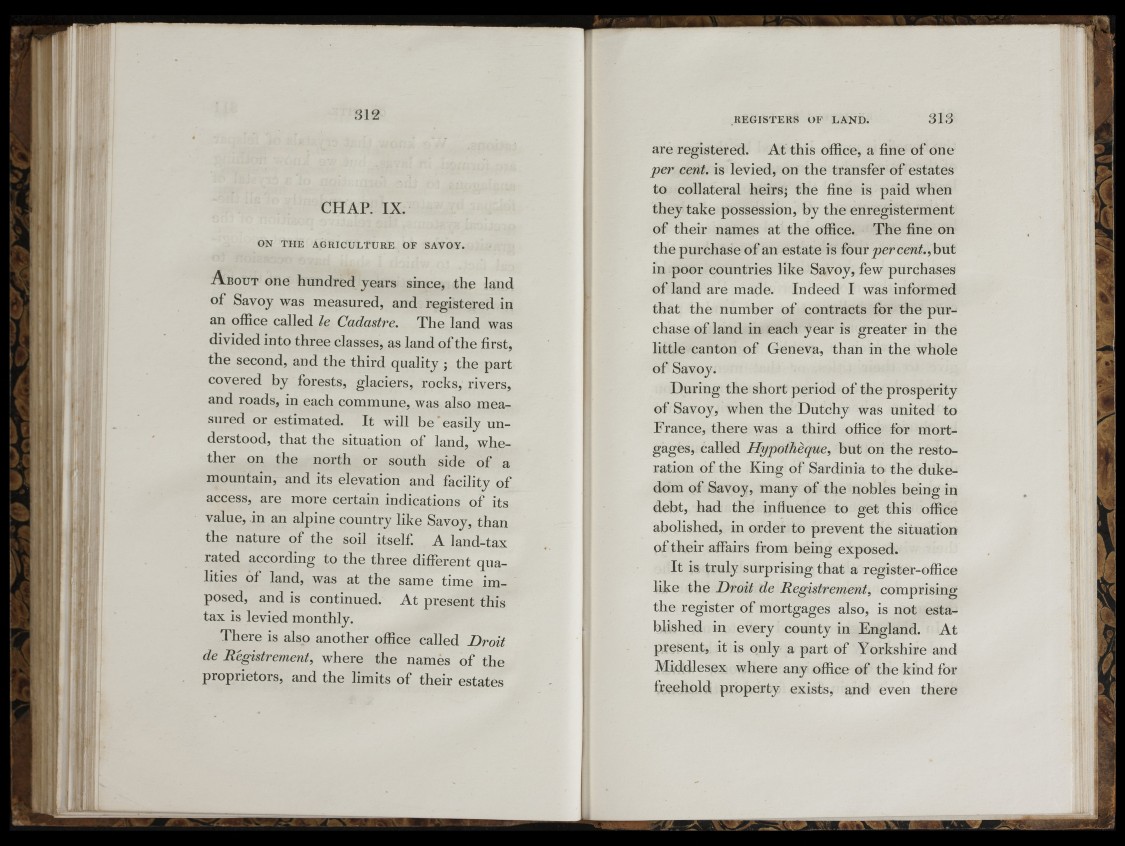
ï ï
'H
B m
313
i
.H i
CHAR IX.
ON T H E A G R ICU L TU R E OF SAVOY.
A b o u t one hundred years since, the land
of Savoy was measured, and registered in
an office called le Cadastre. The land was
divided into three classes, as land ofthe first,
the second, and the third quality ; the part
covered by forests, glaciers, rocks, rivers,
and roads, in each commune, was also measured
or estimated. It will be easily understood,
that the situation of land, whether
on the north or south side of a
mountain, and its elevation and facility of
access, are more certain indications of its
value, in an alpine country like Savoy, than
the nature of the soil itself. A land-tax
rated according to the three different qualities
of land, was at the same time imposed,
and is continued. At present this
tax is levied monthly.
There is also another office called Droit
de Registrement, where the names of the
proprietors, and the limits of their estates
are registered. At this office, a fine of one
per cent, is levied, on the transfer of estates
to collateral heirs; the fine is paid when
they take possession, by the enregisterment
of their names at the office. The fine on
the purchase of an estate is îonv per cent.,hut
in poor countries like Savoy, few purchases
of land are made. Indeed I was informed
that the number of contracts for the purchase
of land in each year is greater in the
little canton of Geneva, than in the whole
of Savoy.
During the short period of the prosperity
of Savoy, when the Dutchy was united to
France, there was a third office for mortgages,
called Hypothèque, but on the restoration
of the King of Sardinia to the dukedom
of Savoy, many of the nobles being in
debt, had the influence to get this office
abolished, in order to prevent the situation
of their affairs from being exposed.
It is truly surprising that a register-office
like the Droit de Registrement, comprising
the register of mortgages also, is not established
in every county in England. At
present, it is only a part of Yorkshire and
Middlesex where any office of the kind for
freehold property exists, and even there
. \
; !
■i I